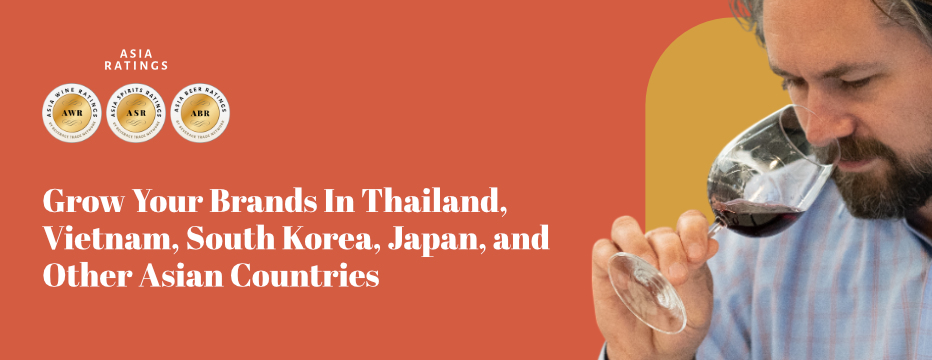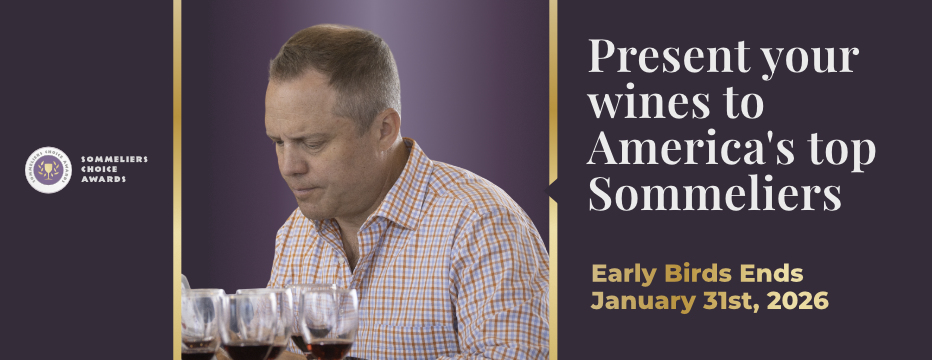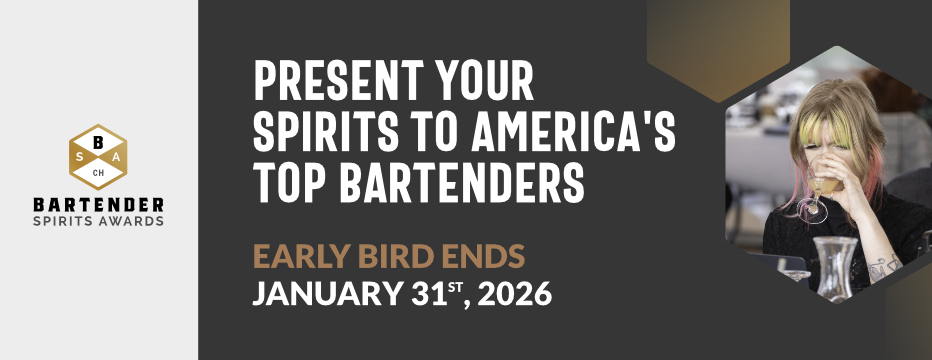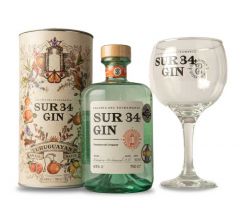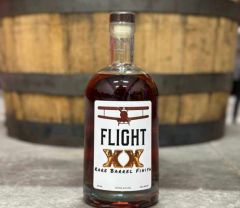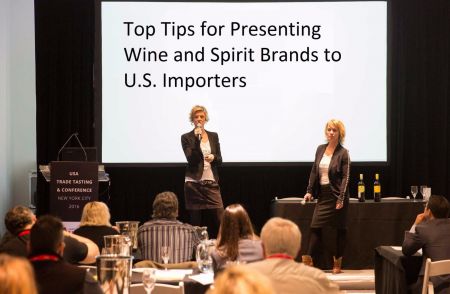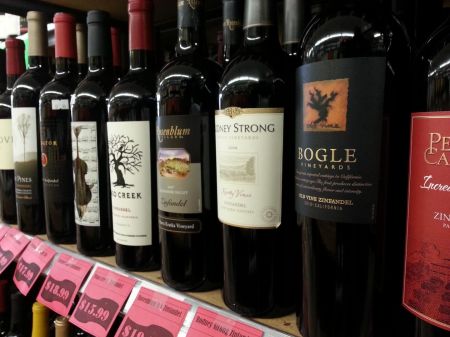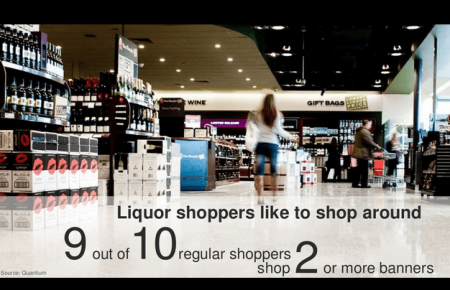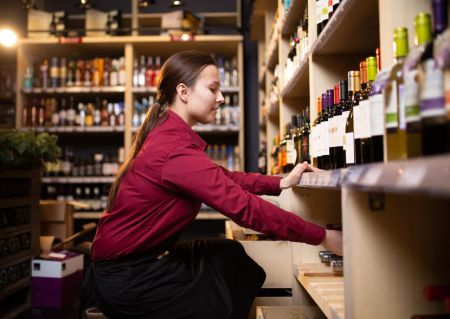Sommeliers Choice Awards 2025 Winners
WineGB’s Roadmap: Cultivating Success Under Nicola Bates
Building a sustainable future for British winemaking.
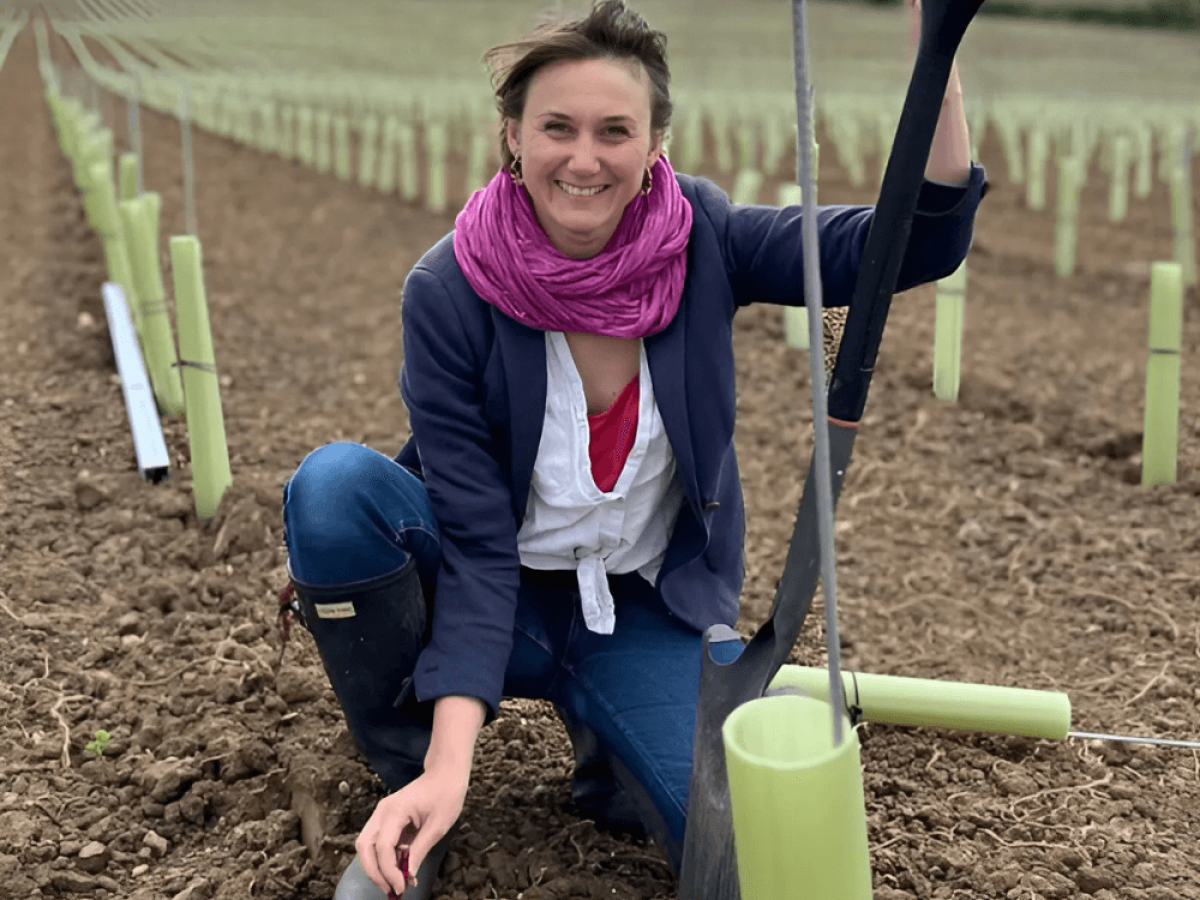
Nicola Bates, the CEO of WineGB, brings a wealth of leadership experience and a fresh perspective to the UK’s wine industry. With a background that spans policy advocacy, strategic growth, and championing diversity, Nicola is poised to lead WineGB into an exciting new phase. As the first female CEO of the organization, her tenure begins at a time of remarkable expansion for the English and Welsh wine sector, with production and sales climbing to unprecedented heights. In this interview, Nicola shares her vision, the strategies underpinning WineGB’s newly launched three-year plan, and how she aims to navigate the challenges and opportunities ahead.
Nicola, as the CEO of WineGB, can you share your initial vision and key priorities for the organization in the coming years?
On 20 November at the Vineyard & Winery Show, we launched the WineGB Strategy and first-ever 3-year plan. This has been developed further to extensive consultation with opportunities for all members to offer their input from 160 individual members, coupled with regional and specialist feedback from our working groups. This culminated in our first Strategy Day, with input from 30 leaders including our regional chairs and specialist working groups with the board and our executive team.
We are focused on ‘Cultivating Success’ and driving member value through delivery. Our mission is to represent, lead, and support the sustainable growth of the Great British wine sector. We are playing our role in driving the sector forward in the areas of production, sales, and representation.
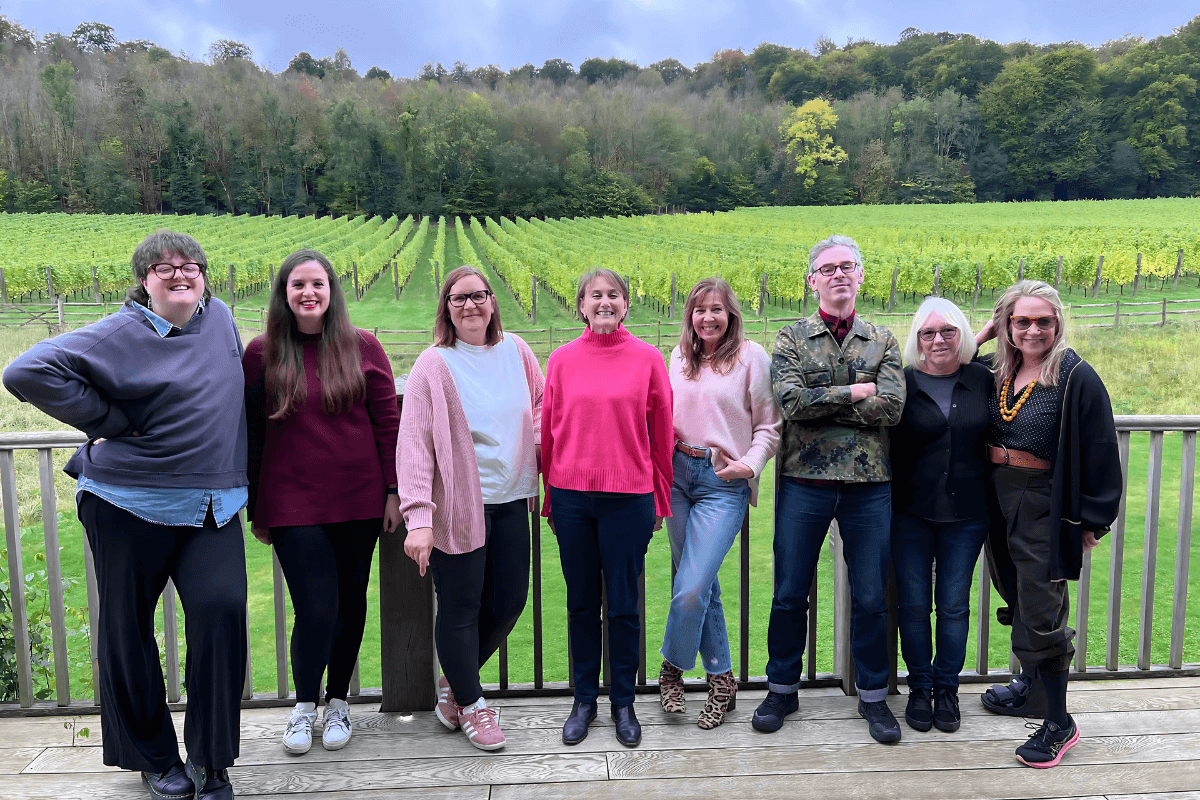
Image: The WineGB team.
In your previous role at the Portman Group, you were instrumental in driving significant policy changes. What are the key policy and regulatory matters within the UK wine industry that are your primary focus right now?
The scope of WineGB’s role is extensive, and at the core is supporting sector growth. We outlined our core asks in our Manifesto for Growth launched during the election. It is an actionable roadmap to show how the government can support the growth of British wines, building on our work and the investment of our members, There are three core pillars:
A fairer business environment looking for changes to duty, especially the creation of a wine tourism relief to drive investment and support employment and broader improvement in conditions for businesses from business rates, employment taxes, and agricultural property relief. This will support our drive for sales in the UK, through tourism and export.
A better environment seeking improvements to planning and infrastructure and support for our sustainable sector and ensuring our businesses can access grants for kit, education, and research.
Valuing British by ensuring that wine regulations are supporting our domestic market and not at the detriment of imports. This can occur through the tightening of labelling rules, not permitting bulk wine to be transformed into sparkling, and ensuring that any changes to wine regulations in the UK do not mislead consumers.
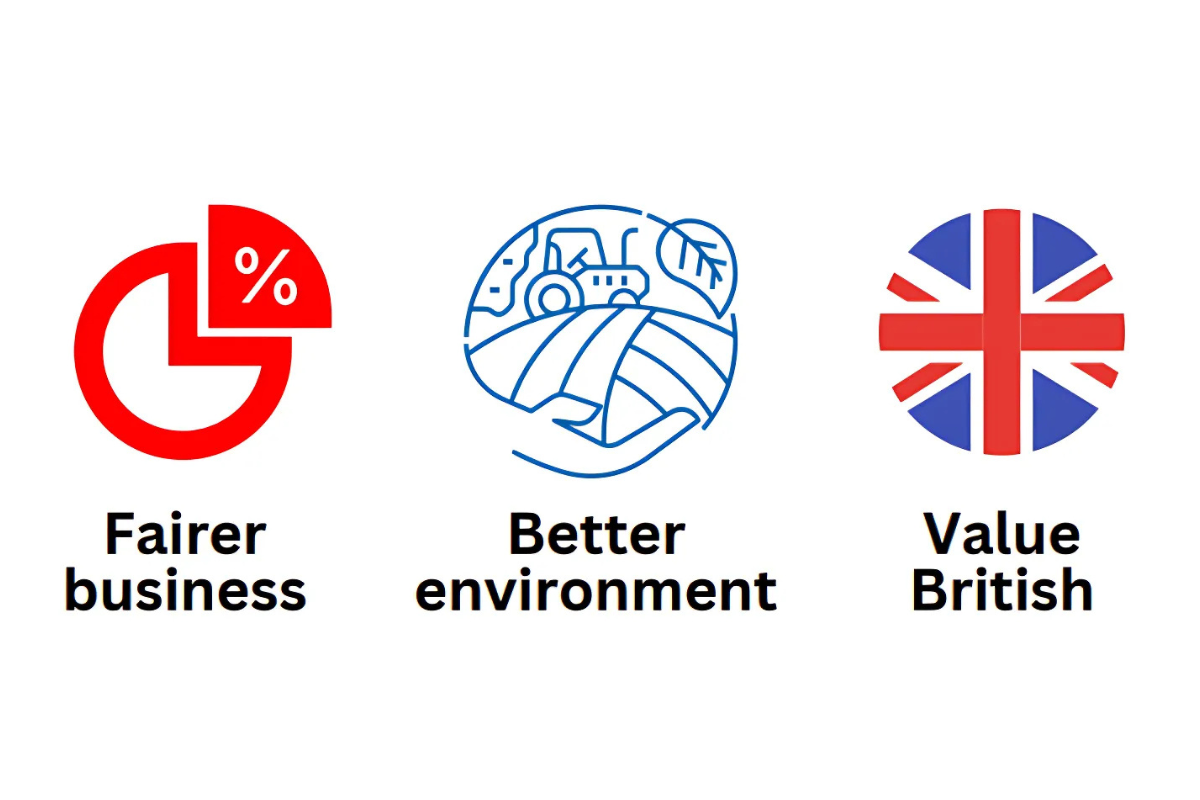
Image: Wine GB’s Manifesto for Growth.
You've been a vocal advocate for diversity and inclusion throughout your career. How do you see yourself incorporating these values within WineGB and the wider UK wine industry? As the first female CEO of WineGB, how do you view the role of women in the wine industry, and what initiatives might you pursue to support and empower more women to enter and thrive in this field?
I am fortunate to join a body that understands that diversity is key to the recruitment and retention of the best teams and to appeal to the widest consumer base – it was part of the attraction to join as the first female CEO. I am supported by a 50:50 board and a driver of change in my Chair Sam Linter who has had this as a focus for her mission at WineGB.
In the case of diversity, it is deeds, not words that matter most. During our first ever 30 Days of Sustainable Action, we gifted two key initiatives that help our sector and all of the wider alcohol industry.
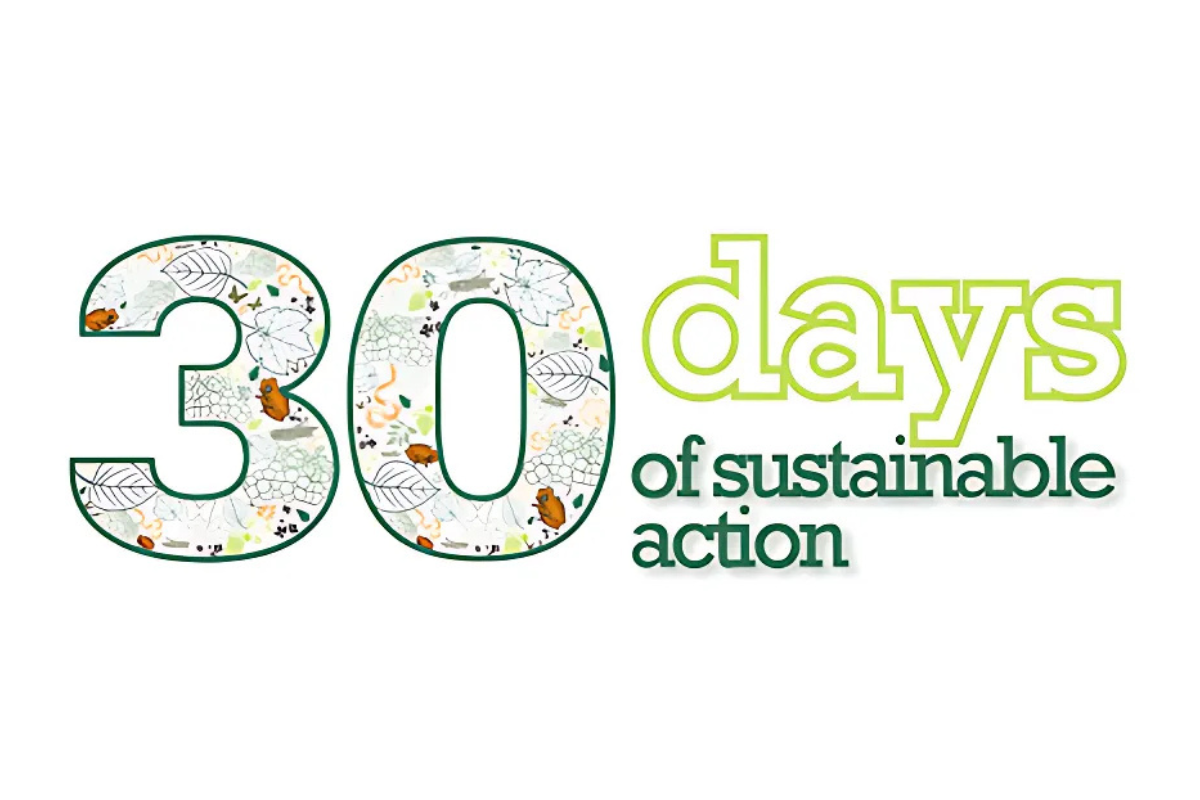
1. We introduced a free Safeguarding Toolkit designed to practically help employers with their duty of care to protect the health, well-being, and rights of workers across the UK wine industry. This comprehensive resource serves as a central hub for safeguarding guidance, support, and procedures. We have also released a separate guide on 'What to Do If You Have Been Assaulted or Experienced a Safeguarding Offence', to ensure immediate, accessible support.
This initiative was motivated by two critical developments:
• New legislation on 26 October that introduced a new requirement for businesses to proactively prevent sexual harassment in the workplace.
• Recent findings from Curious Vines and Proof Insight revealed that one in three women in the industry have experienced harassment at work – a figure that rises to one in two for those aged 18 to 34.
2. The WineGB People Support Hub is an online resource designed to support individuals and teams in the wine industry. It offers resources to help you personally, assist colleagues and friends, and cultivate an inclusive, supportive team environment. Whether you’re an individual, a business owner, or an ally looking to support a friend, it will connect you with a wide range of expert bodies specialising in fields such as alcohol, hospitality, agriculture, and diversity, making it easy to find the most relevant guidance for your needs.
We encourage all to use it to accelerate the widening of the UK wine sector.
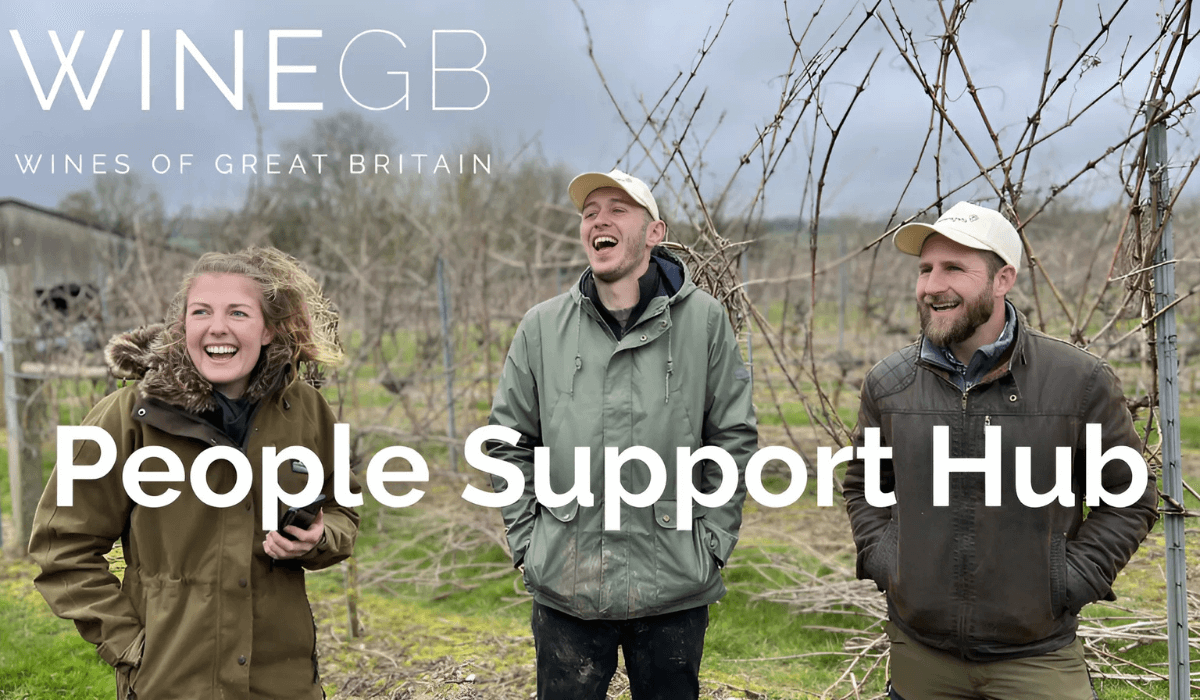
Image: Wine GB’s People Support Hub.
The launch of the £1.5m 'Future Winemakers' Scheme aims to boost the UK wine industry. What are your thoughts on this initiative, and how do you see it shaping the future of UK winemaking? How will WineGB support this initiative and ensure its success?
We were delighted with the fund which we worked with Plumpton College to secure and its launch by the then Secretary of State for Defra at our conference in April. Since then there has of course been an election and our big ask is that with the new Government, as it reflects on the spending review, is that this essential support to education is adopted, expanded, and annualized so the industry is able to plan and use the funds over the long term to drive the number of employees we need over the future. As stands, we have over 2,000 full-time employees and this is expected to double in three years – this fund allows businesses to hire and train teams, without diverting funds from other essentials in building our market in a highly competitive UK environment and overseas.
Could you tell us about any programs to encourage and champion sustainable practices within the UK wine industry?
WineGB recognises that our industry has a shared responsibility to minimise our impact on the environment and maximise our contribution to environmental conservation and biodiversity. The Sustainable Wines of Great Britain (SWGB) Scheme was established in 2020 to bring authority, assurance, and credibility to the way in which sustainability is measured and observed in the wine industry of Great Britain. Already over 40% of UK hectarage is under the independently audited scheme where wine producers show their SWGB certification for their vineyards, wineries, and wines. It is recognized by many as a proof point for sustainability, including the Swedish wine monopoly Systembolaget which oversees entry into our 4th largest export market. We are driving uptake and awareness of the scheme over the coming years to make it easier for consumers to understand how their wine is farmed and created.
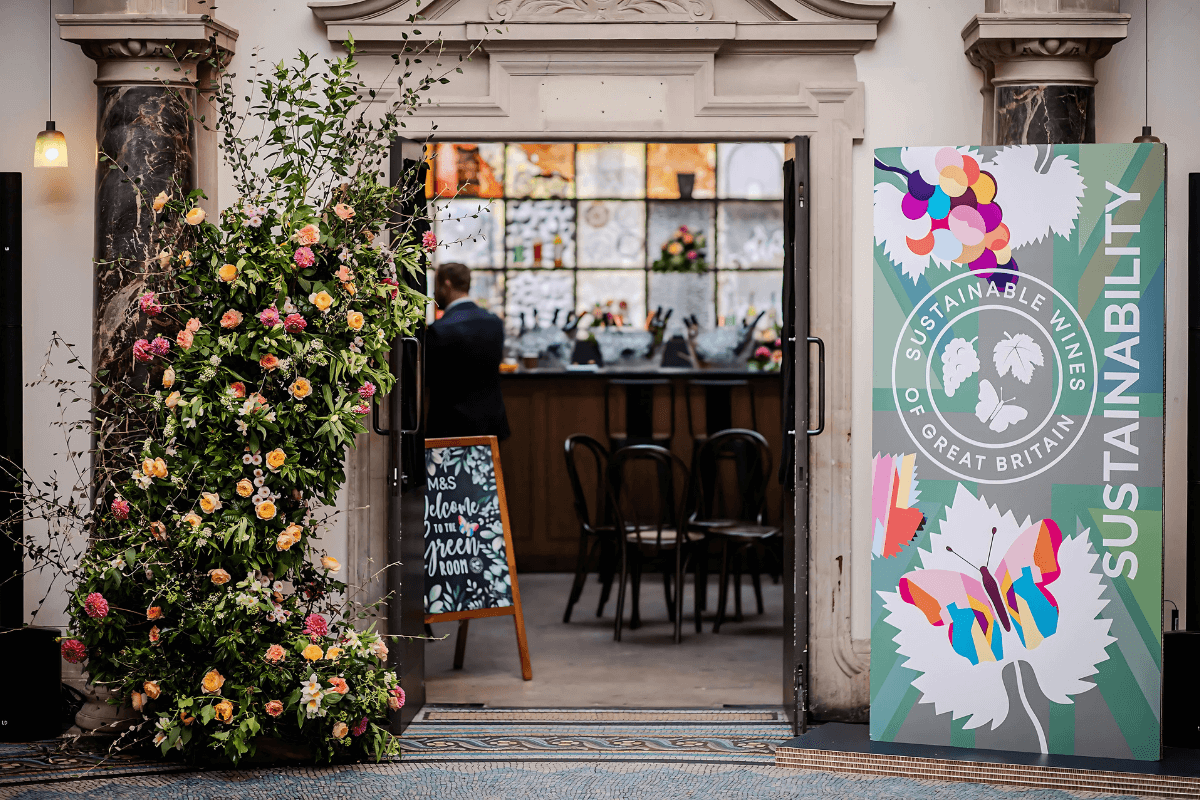
Image: The Green Room celebrating wine sustainability and the SWGB scheme.
The UK wine tourism sector has seen a significant surge recently, with visits to vineyards up by 55%. What strategies do you think are key to maintaining and further accelerating this growth?
Wine tourism is an increasingly important part of the UK wine industry, with 1.5 million visits made to vineyards and wineries last year. On average, wine tourism activities account for a quarter of total vineyard/winery income.
There are actions for everyone to play. WineGB convenes all of the tourism clusters in our Tourism Working Group. This is set up to do four things: convene, communicate, educate, and represent tourism to the industry and government. It is the clusters and private businesses that wave the flag and directly map out tourist routes that are developing regional identities and encouraging people to visit businesses.
Individual businesses are investing in their cellar doors, and are able to develop this further through education. We have the advantage of being a new industry in an established arena and are working with VisitEngland to roll out significant education based on Wine Australia’s tourism training to our members over 2025. This will help people to create the best proposition for their individual businesses.
Finally, the Government has an important role. In our first Tourism Report published during English Wine Week this year, we outline 7 steps for them to take. One significant area is a fairer tax regime for English and Welsh wine would address the competitive disadvantages that our sector contends with in the UK. The introduction of an English and Welsh Cellar Door Duty Relief Scheme modelled on the Australian scheme of the same name to drive sales and support tourism. This would be a game changer for encouraging rural investment and employment. A successful scheme would encourage investment in infrastructure, employment, and tourist facilities by vineyards and wineries across England and Wales. Our members have stated clearly that revenue raised through such a scheme would be re-invested directly back into their business.
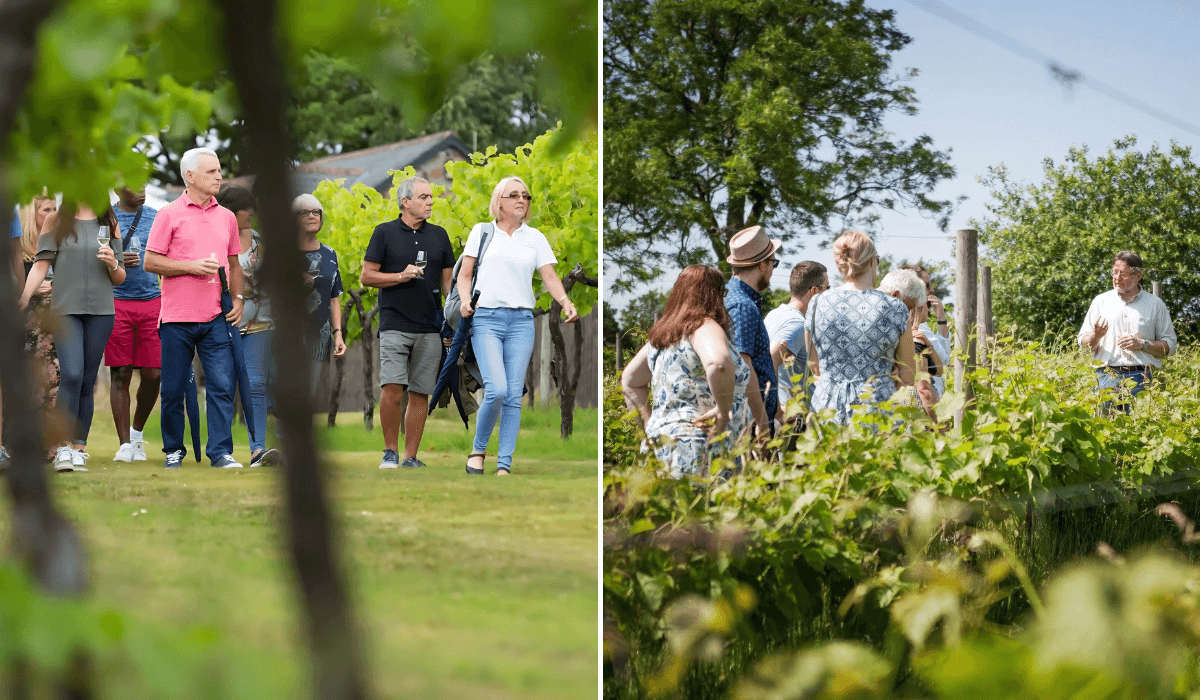
Image: The English Wine Week is all about celebrating exceptional English wines and showcasing the stunning vineyards and vibrant local tourism they attract.
Looking at the current trends and challenges within the UK wine sector, what do you see as the most significant opportunities for growth and innovation in the next decade?
UK wines are a real growth story and a huge opportunity. Both production and sales are growing and each area needs nurturing and development as we recognise the level of global competition and the change in demand. WineGB has plans for each and the team driving forward educational support and information sharing to support production in a cool climate region, and make trade happen with direct support to market access for export, engaging with tourism, and also connecting to UK trade showcasing our producers of quality wines with our Awards, English Wine Week, and our National Trade Tasting.
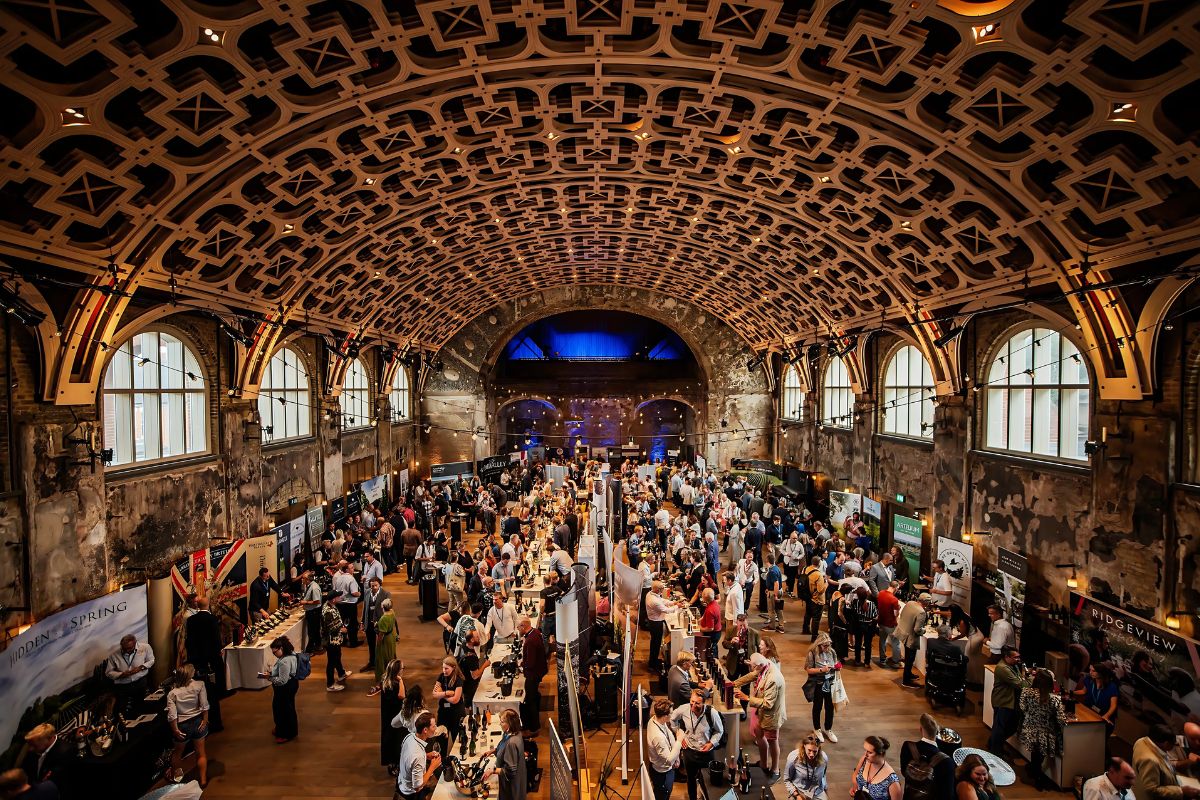
Image: The WineGB National Trade Tasting, held in early September 2024.
Finally, as someone with extensive experience in both policy and industry advocacy, what is your vision for the future of the UK wine industry, and what role do you see for WineGB in shaping that future?
Great Britain is a sustainable wine region of world renown, recognised and celebrated for the quality of its wines and visitor experiences. WineGB is the leader of domestic UK wine production and the body that reflects the collective interests of our 500 producers and growers. We bring expertise to bear from our partners and patrons to upskill our members to give them a competitive advantage in their production and sales. Their work allows us to promote WineGB’s role as a lynchpin in the sector and to drive forward the policy needs that will shape the coming decade. At the end of the day, we are the fastest-growing agricultural sector in the UK and we are placed to put the case to Government to support our needs.
[[relatedPurchasesItems-38]]
Conclusion
Under Nicola Bates’ leadership, WineGB is embracing its role as a driver of growth and innovation for the UK wine industry. With a focus on sustainability, diversity, and strategic collaboration, the organization is well-positioned to navigate the challenges of a rapidly evolving sector. Nicola’s passion for the industry, coupled with her commitment to supporting its members and championing British wines on the global stage, ensures that WineGB will remain at the forefront of this exciting journey. As Nicola aptly puts it, “The future of English and Welsh wine is bright, and together, we’ll ensure it flourishes.”
In conversation with Malvika Patel, Editor and VP, Beverage Trade Network
Also Read:
Driving Success in the UK Wine Industry: Insights from Kingsland Drinks
How Freixenet Copestick is Future-Proofing Wine with Premium, Sustainable Offerings
The Significance of UK Supermarkets to the Wine Industry

